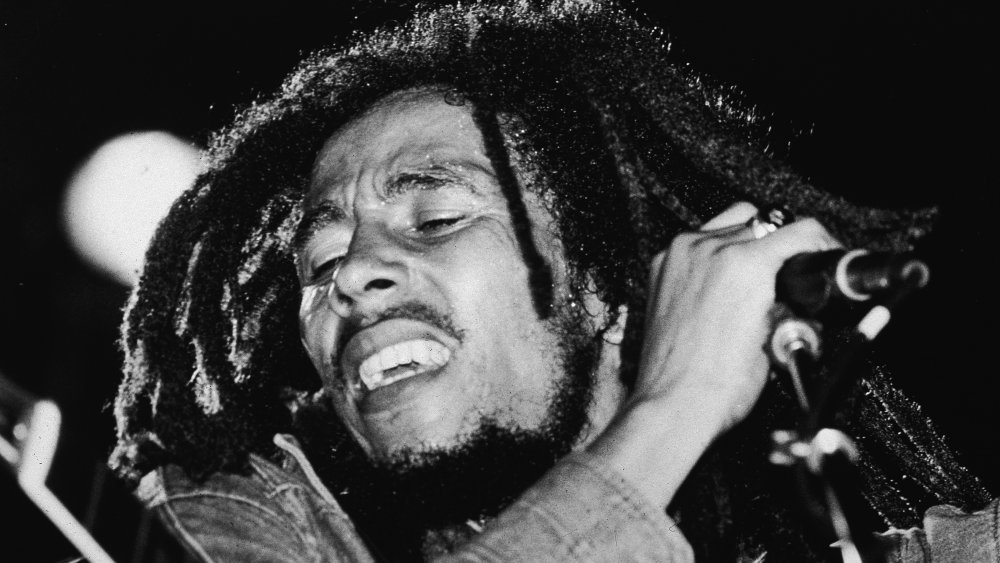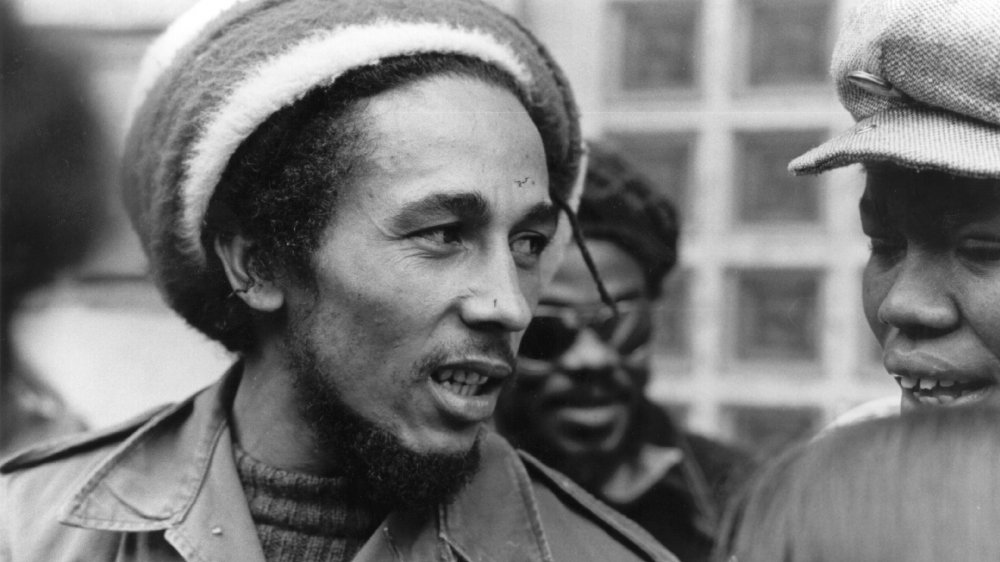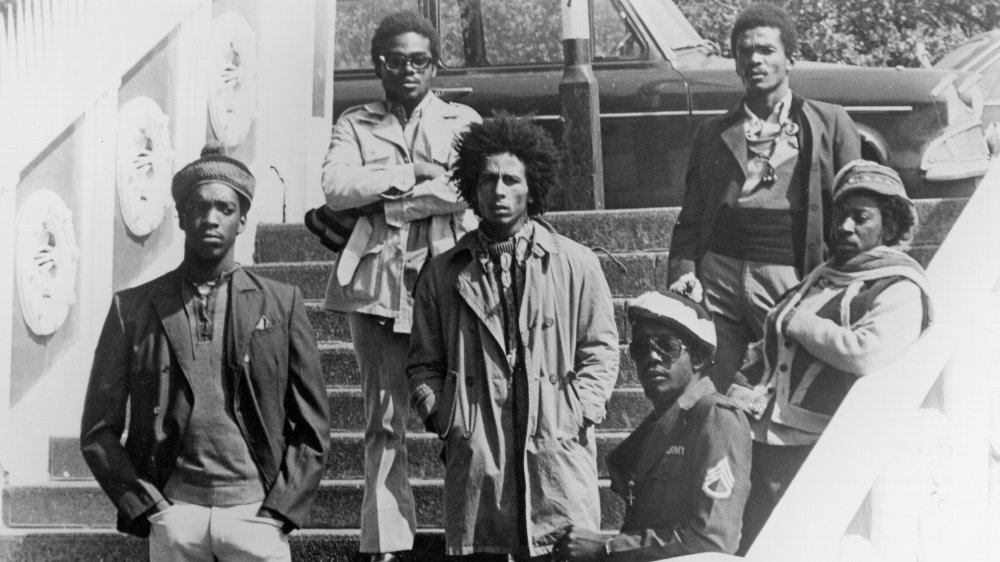The Time Bob Marley Was Almost Assassinated
To truly know Bob Marley, one not need look further than his music. The legendary Jamaican artist changed the course of history — musical or otherwise — through the spread of reggae and Rastafarianism, uplifting African descendants across the globe, and in many ways, revolutionized the relationship between the so-called "developed" and "developing" worlds. As stated on Biography, Marley was born in 1945 in St. Ann Parish, Jamaica, where he spent his childhood before moving to the nation's capital, Kingston. Kingston, at the time, was an often lethally dangerous place of organized crime and rival politics. It was this environment of strife and vibrant life that gave birth to Marley's music, spirit, and ideology, especially within the borough where he lived, Trench Town.
While Bob Marley himself has become the subject of numerous biographies, the assassination attempt on his life has come to the forefront time and again. Netflix's remastered 2018 documentary Who Shot the Sheriff presents a narrative of events using firsthand accounts and footage. 2015's Man Booker Prize winner A Brief History of Seven Killings by Marlon James presents a fictionalized version of events. 2006's The Book of Exodus (an excerpt can be read on the Guardian), reveals journalist's Vivien Goldman's account of the time she spent with Marley in 1976.
There's a lot of material to work with to piece together what happened in the days leading up to gunmen opening fire on Marley's home, but even so, the story is complex, and the final truth unclear.
If it no go so, it go near so
By the time 1976 rolled around, Bob Marley had become a politicized figure, and his fame and acclaim didn't go unnoticed in his native country. Marley was seen as an inherent supporter of Jamaican Prime Minister Michael Manley's People's National Party (PNP), which was associated with Castro-led Cuba as well as the Soviet Union. To complicate things, the opposition party, the Jamaican Labour Party, was backed by the CIA to try and countermand the rise of a potentially communist nation. Kingston itself was an absolute mess, full of firearms, violence, and infighting. And to make things even riskier for Marley, he and his wife Rita's house was located in Kingston, at 56 Hope Road (now a museum). In short, the stage was more than set for trouble.
Amidst all this, in 1976, as cited by Face2FaceAfrica, Marley helped organize a concert called Smile Jamaica to help ease tension and bring people together. Two days before the concert, on December 3, Marley and the Wailers were practicing at Hope Road when gunmen beset the house and opened fire. Rita was shot in the head, but lived, and Marley's manager Don Taylor was hit five times. A bullet meant for Marley miraculously bounced off his sternum and lodged itself in his arm. Somehow, through freak chance or poor marksmanship, no one was killed despite Marley's bullet-ridden, blood-slicked home.
Two days later, Marley performed at the concert as scheduled.
In this bright future, you can't forget your past
The day after the concert, Marley understandably fled Jamaica. He went to London, where he recovered and continued working on his monumental 1977 album Exodus, which Time called the album of the century in 1999, per High.co.
The details and final motivation for the attempt on Marley's life remain unknown to this day, although its clear to see how any number of players involved would have wanted him out of the picture. Smile Jamaica, an ostensibly non-political concert held during an election year, liked proved the perfect opportunity to take action against some rival faction, using Marley as a pawn. Marlon James' aforementioned Booker Prize-winning novel, which contains 75 characters across 30 years, speculates about involvement from gangs seeking power, and their recruitment of drug-addled gunmen as fall guys who simply couldn't follow through with the job.
As recounted on Moguldom, there are other telling circumstances surrounding the assassination attempt. Marley's longtime bodyguards vanished before the hit took place at 8:30pm, allowing two white Datsuns into Marley's home studio, Tuff Gong. Additionally, author Timothy White of "Catch a Fire" reports receiving information that the CIA hired Carl Byah "Mitchell," a Jamaica Labour Party gunman, to orchestrate the hit.
Bob Marley's son Ziggy, who was 8 at the time of the shooting, recounts the event by saying of his mother, "Even a bullet in her head couldn't stop her from serving that higher purpose."


